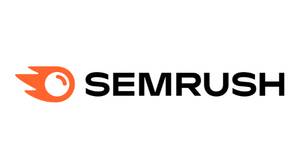
PPC (Pay-Per-Click) keyword research tools play a critical role in the success of ad campaigns by providing invaluable insights that drive strategic decisions. These tools enable advertisers to identify the most relevant and high-performing keywords, ensuring that their ads reach the right audience at the right time. By uncovering keywords with high search volumes and low competition, businesses can optimize their ad spend, maximizing return on investment (ROI).
Moreover, PPC keyword research tools help in understanding user intent and behavior, allowing marketers to craft more targeted and compelling ad copy. This relevance not only boosts click-through rates (CTR) but also enhances the overall user experience by delivering content that aligns closely with search queries. Additionally, these tools offer competitive analysis features that reveal which keywords competitors are bidding on, enabling businesses to identify gaps and opportunities in their own strategies.
In essence, PPC keyword research tools are indispensable for refining ad campaigns to be more efficient and effective. They provide a data-driven foundation for decision-making, ensuring that marketing efforts are both targeted and impactful. Without these tools, advertisers would be navigating blindly in an increasingly competitive digital landscape.
Semrush PPC Keyword Research Tool Overview
The SEMrush PPC Keyword Research Tool is an invaluable asset for digital marketers aiming to optimize their pay-per-click (PPC) campaigns. This comprehensive tool assists users in identifying high-performing keywords that can drive targeted traffic and improve ad spend efficiency. By leveraging a vast database of search queries and competitive analysis, the SEMrush tool enables users to uncover keyword opportunities that might otherwise go unnoticed.

Try SEMrush Free PPC Keyword Research Tool
One of the standout features of SEMrush’s PPC Keyword Research Tool is its ability to provide detailed insights into keyword metrics such as search volume, cost-per-click (CPC), competition level, and trends over time. These metrics help marketers make informed decisions about which keywords to target for maximum ROI. Additionally, the tool offers competitor analysis, allowing users to see which keywords their rivals are bidding on and how successful those bids have been.
Moreover, the tool integrates seamlessly with other SEMrush features like site audits and backlink analysis, providing a holistic approach to PPC strategy development. Users can create comprehensive keyword lists, track their performance over time, and adjust bids accordingly — ensuring that every dollar spent on advertising is optimized for effectiveness.
Utilizing Google Ads Keywords Planner For Ppc Campaigns
Utilizing Google Ads Keyword Planner for PPC campaigns can significantly enhance the effectiveness of your advertising efforts by providing valuable insights into keyword performance and competition. This powerful tool allows marketers to discover relevant keywords, estimate their search volume, and understand the competitive landscape, thereby informing strategic decisions in campaign planning.
To begin with, Google Ads Keyword Planner offers a comprehensive database of keywords related to your business or industry. By entering a few seed keywords or your website URL, you can generate a list of potential keywords along with metrics such as average monthly searches, competition level, and suggested bid estimates. This data is crucial for identifying high-potential keywords that align with your advertising goals and budget.
Moreover, the tool enables you to analyze trends over time, helping you anticipate seasonal fluctuations in search behavior and adjust your campaigns accordingly. With its ability to forecast potential traffic and cost estimates based on historical data, Keyword Planner aids in budgeting and setting realistic expectations for campaign performance.
Incorporating insights from Google Ads Keyword Planner into your PPC strategy ensures that you’re targeting the most relevant and cost-effective keywords. This targeted approach not only maximizes ROI but also enhances ad relevance and user engagement.
Understanding Long-Tail Keywords And Keyword Density For Ppc
Understanding long-tail keywords and keyword density is crucial for effective PPC (Pay-Per-Click) campaigns. Long-tail keywords are specific, multi-word phrases that users are more likely to employ when they are closer to making a purchase or seeking detailed information. Unlike broad keywords, which can be highly competitive and costly, long-tail keywords often have lower search volumes but higher conversion rates. This is because they capture the intent of users who know exactly what they’re looking for, thereby improving the relevance of your ads and maximizing ROI.
Keyword density, on the other hand, refers to the frequency of a particular keyword appearing in your ad copy relative to the total number of words. While it’s important to include your targeted keywords to signal relevance to search engines and users alike, overstuffing can lead to poor readability and even penalties from advertising platforms like Google Ads. Striking a balance by naturally integrating long-tail keywords into compelling ad copy ensures that your ads are engaging while still being optimized for search algorithms.
By mastering both long-tail keyword selection and appropriate keyword density, you can create highly targeted PPC campaigns that not only attract clicks but also convert those clicks into meaningful actions.
Generating Keyword Suggestions With Ppc Keyword Tools
Generating keyword suggestions with PPC (Pay-Per-Click) keyword tools is a critical step in crafting effective online advertising campaigns. These tools are designed to help advertisers identify high-performing keywords that can drive targeted traffic to their websites. By leveraging sophisticated algorithms and extensive databases, PPC keyword tools provide insights into search volume, competition levels, and estimated costs per click.
The process begins by inputting seed keywords relevant to your business or campaign. The tool then generates a list of related keywords that potential customers might use when searching for products or services similar to yours. This list often includes long-tail keywords — phrases that are more specific and typically less competitive but highly targeted.
Additionally, these tools offer valuable data such as search trends over time, geographic performance, and even seasonal variations. This information allows advertisers to refine their strategies by focusing on the most cost-effective and relevant keywords. Some advanced tools also incorporate negative keyword suggestions to help filter out irrelevant traffic, ensuring that your ad budget is spent efficiently.
Overall, generating keyword suggestions with PPC keyword research tools not only enhances the precision of your campaigns but also maximizes ROI by targeting the right audience with the right terms.
Enhancing Paid Search Strategy With Seo Tools For Keywords
Enhancing your paid search strategy with SEO tools for keywords can significantly amplify your marketing efforts, driving both efficiency and effectiveness. While PPC keyword research tools are tailored specifically for identifying high-performing paid search terms, integrating insights from SEO tools can offer a more holistic approach to keyword selection and optimization.
SEO tools provide a wealth of data that complements PPC strategies. They reveal organic search trends, competitor keyword usage, and long-tail keywords that might not initially surface in PPC-focused analyses. By leveraging this information, marketers can uncover gaps in their current strategy and discover new opportunities for targeting underserved niches.
Moreover, understanding the interplay between organic and paid search performance helps in creating a cohesive digital marketing strategy. Keywords that perform well organically often have high relevance and engagement potential when used in PPC campaigns. This synergy not only maximizes visibility but also enhances return on investment by ensuring that every click is as impactful as possible.
Ultimately, the integration of SEO tools into your PPC keyword research fosters a more comprehensive understanding of market dynamics. It empowers marketers to make data-driven decisions that optimize both their paid and organic search efforts, leading to sustained growth and competitive advantage.
Maximizing Results With Effective Ppc Keywords Research
Maximizing results with effective PPC keyword research involves a strategic blend of analytical rigor and creative insight. It begins with understanding your target audience — knowing their search behaviors, preferences, and pain points. This foundational knowledge allows you to craft a list of potential keywords that resonate deeply with your audience’s intent. However, not all keywords are created equal. Effective PPC keyword research delves into metrics such as search volume, competition level, and cost-per-click to identify high-performing terms that balance reach and budget efficiency.
Utilizing advanced tools can enhance this process by providing insights into long-tail keywords — phrases that may have lower search volumes but higher conversion rates due to their specificity. Additionally, regularly analyzing keyword performance data is crucial; it allows for ongoing optimization by identifying which terms are driving traffic and conversions and which are underperforming or irrelevant.
Negative keywords also play a pivotal role in maximizing results. By filtering out terms that attract uninterested users or irrelevant clicks, you ensure your ad spend is directed toward the most promising prospects. Ultimately, effective PPC keyword research is an iterative process requiring continuous refinement to stay aligned with evolving market trends and consumer behaviors.
Choosing The Best Ppc Keyword Tool For Your Business
Choosing the best PPC keyword research tool for your business is a crucial step towards optimizing your advertising campaigns and ensuring you get the most out of your budget. The ideal tool should align with your specific needs, whether you’re running a small local business or managing large-scale campaigns for an enterprise. Start by evaluating the scope and scale of your operations; some tools offer extensive databases suitable for international campaigns, while others focus on niche markets.
Consider the depth of insights provided by each tool. Look for features like search volume trends, competitive analysis, and keyword suggestions tailored to your industry. The ability to integrate seamlessly with other marketing platforms can also be a significant advantage, streamlining workflow and enhancing data accuracy.
User experience is another critical factor. A tool with an intuitive interface can save time and reduce the learning curve, allowing you to focus more on strategy than navigation. Additionally, customer support and training resources can be invaluable in maximizing the tool’s potential.
Lastly, weigh cost against value. While premium tools may offer comprehensive features, there are also affordable options that provide essential functionalities without breaking the bank. By carefully considering these factors, you can select a PPC keyword research tool that perfectly complements your business objectives and budget constraints.
Digital Web Services (DWS) is a leading IT company specializing in Software Development, Web Application Development, Website Designing, and Digital Marketing. Here are providing all kinds of services and solutions for the digital transformation of any business and website.










